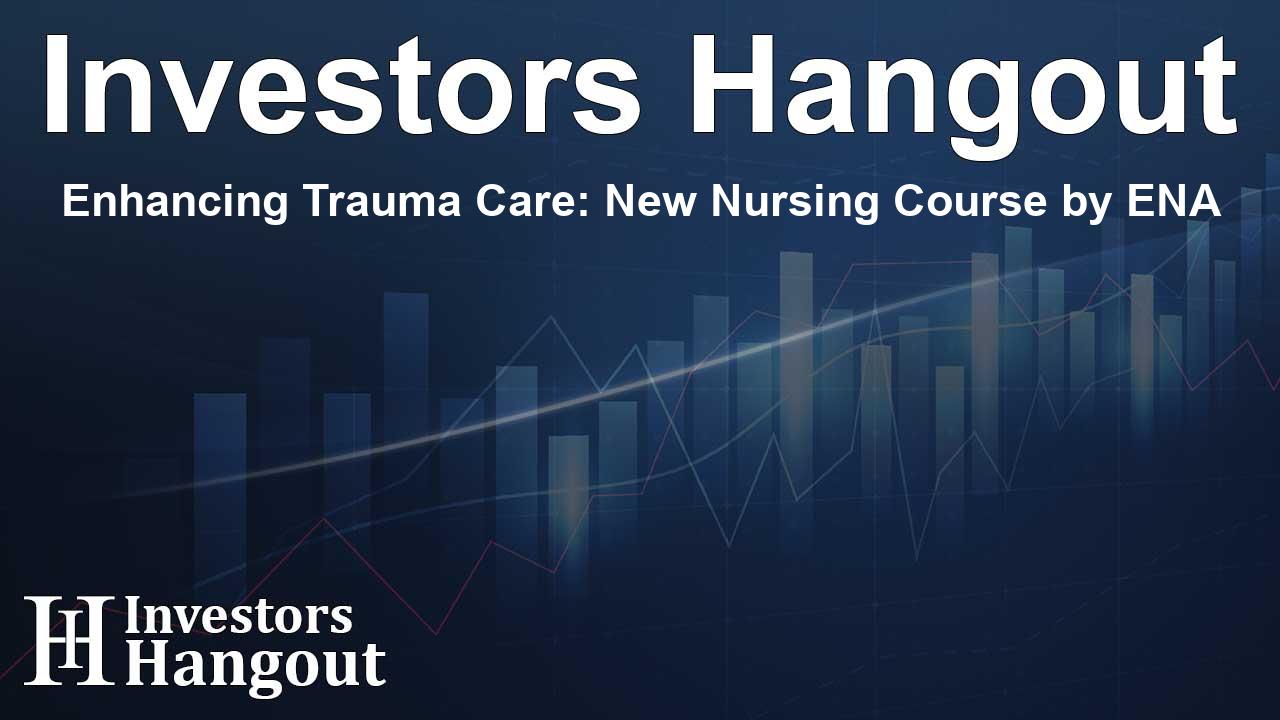Enhancing Trauma Care with ENA's New Course
When it comes to managing severe injuries, nurses equipped with advanced knowledge have a crucial advantage in providing exceptional patient care. The Emergency Nurses Association (ENA) has introduced the Trauma Nursing Advanced Course (TNAC), a program designed specifically for emergency, trauma, and critical care nurses looking to elevate their expertise in trauma management.
Why is the TNAC Important?
The TNAC addresses the growing need for advanced nursing practices in emergency settings. As trauma cases become increasingly complex, the demand for knowledgeable nurses who can handle these situations adeptly is higher than ever. According to ENA President Ryan Oglesby, the TNAC is designed to offer experienced nurses the critical thinking and clinical skills necessary for effective trauma care. This advanced training fosters confidence, enabling nurses to assess and respond to complicated trauma cases with precision.
Course Design and Structure
The TNAC spans a learning period of approximately three to four weeks, combining online modules with in-person or virtual classroom experiences. This innovative structure culminates in a final simulation experience, where nurses can apply what they've learned in a practical setting. The course content is robust, covering critical areas such as physiological responses to trauma, shock management, massive transfusion protocols, and the complexities of neurological trauma.
Prerequisites for Enrollment
Before beginning the TNAC, participants are required to verify completion of a current Trauma Nursing Core Course, specifically from the eighth or ninth edition. Upon successful completion of the TNAC, nurses earn 25 contact hours along with a four-year verification status, underscoring their advanced clinical capabilities in trauma care.
Research-Driven Enhancements
The creation of the TNAC was informed by thorough research conducted by ENA scholars. This research identified key elements that are essential for an advanced trauma nursing curriculum tailored to emergency department settings. It underscores ENA’s commitment to evidence-based education in nursing practice, ensuring that the course is not only relevant but also highly effective in improving patient outcomes.
Commitment to Excellence in Nursing Education
ENA's dedication to enhancing care and education reflects a broader pursuit of excellence within the nursing profession. Oglesby emphasizes the importance of continued research and development in nursing education, asserting that providing nurses with the right tools will invariably benefit patient care quality. As the only nursing association that develops its own research, ENA is uniquely positioned to influence the trajectory of emergency nursing education positively.
Benefits for Healthcare Institutions
For healthcare providers looking to implement the TNAC within their facilities, it represents an invaluable investment in staff competency. Nurses trained in the TNAC are not only more capable in emergency situations, but they also contribute to a culture of safety and excellence in patient care. To learn more about bringing this course to a hospital, interested parties can reach out directly to ENA.
Frequently Asked Questions
What is the Trauma Nursing Advanced Course?
The Trauma Nursing Advanced Course (TNAC) is designed to enhance the skills and knowledge of nurses working in emergency, trauma, and critical care settings.
Who can enroll in the TNAC?
The TNAC is intended for experienced nurses who have completed the Trauma Nursing Core Course and are looking to develop their expertise in trauma management.
What are the benefits of completing TNAC?
Participants of the TNAC earn 25 contact hours and a four-year verification, demonstrating their advanced skills in trauma nursing.
How is the TNAC structured?
The course is a blend of online learning, classroom sessions, and a simulation experience, designed to provide comprehensive training in trauma care.
Why is advanced trauma nursing education essential?
Advanced trauma nursing education is essential because it equips healthcare professionals to better handle complex trauma cases and improve patient outcomes.
About The Author
Contact Evelyn Baker privately here. Or send an email with ATTN: Evelyn Baker as the subject to contact@investorshangout.com.
About Investors Hangout
Investors Hangout is a leading online stock forum for financial discussion and learning, offering a wide range of free tools and resources. It draws in traders of all levels, who exchange market knowledge, investigate trading tactics, and keep an eye on industry developments in real time. Featuring financial articles, stock message boards, quotes, charts, company profiles, and live news updates. Through cooperative learning and a wealth of informational resources, it helps users from novices creating their first portfolios to experts honing their techniques. Join Investors Hangout today: https://investorshangout.com/
The content of this article is based on factual, publicly available information and does not represent legal, financial, or investment advice. Investors Hangout does not offer financial advice, and the author is not a licensed financial advisor. Consult a qualified advisor before making any financial or investment decisions based on this article. This article should not be considered advice to purchase, sell, or hold any securities or other investments. If any of the material provided here is inaccurate, please contact us for corrections.

